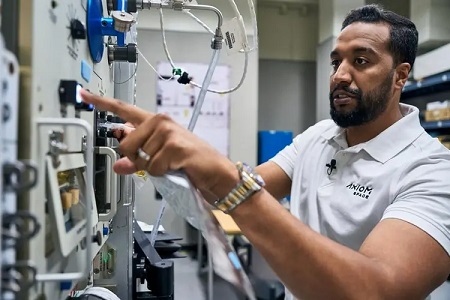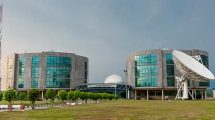
Saudi Space Commission (SCC) has confirmed that the Saudi astronauts are ready to fly to the International Space Station (ISS) this month, after completing their nine-month training programme.
The astronauts, Rayyanah Barnawi and Ali AlQarni, will conduct 14 pioneering scientific research experiments in the microgravity environment including three educational awareness experiments during the mission on the ISS. This comes within the Kingdom’s astronaut programme, which was announced last September as one of the strategic programmes the commission is executing.
As part of their training, the astronauts underwent 12 days in simulated space conditions. During this time, they carried out the training related to the experiments that would be conducted on the mission; simulating the penetration of the Earth’s atmosphere and the accompanying effect of gravitational forces, rapid acceleration and the heavy pull of gravity on the human body. They trained on all of the equipment and procedures necessary to complete the mission on the ISS with Axiom Space and SpaceX at the National Space Training and Research Center (NASTAR) – one of the state-of-the-art flight simulator facilities in Pennsylvania, USA.
The astronauts underwent their training at the NASA Johnson Center within the Human Exploration Research Analog (HERA) programme which is designed to push people to the extremes and to prepare the team for their AX-2 mission to the ISS. Besides inspiring students, the mission emphasises the importance of research, astronauts’ lives, and integrative science’s role in improving the quality of life on Earth.
Astronauts Rayyanah Barnawi and Ali AlQarni have expressed their pride and gratitude in representing the Kingdom of Saudi Arabia in their first sustainable Human Space Flight (HSF) programme and to help realise its ambition in the field of space.
AlQarni said: “The training programme enhanced our readiness to deal with any challenge we may face during the space mission, and has helped us develop the skills necessary for the success of the mission.”












Add Comment